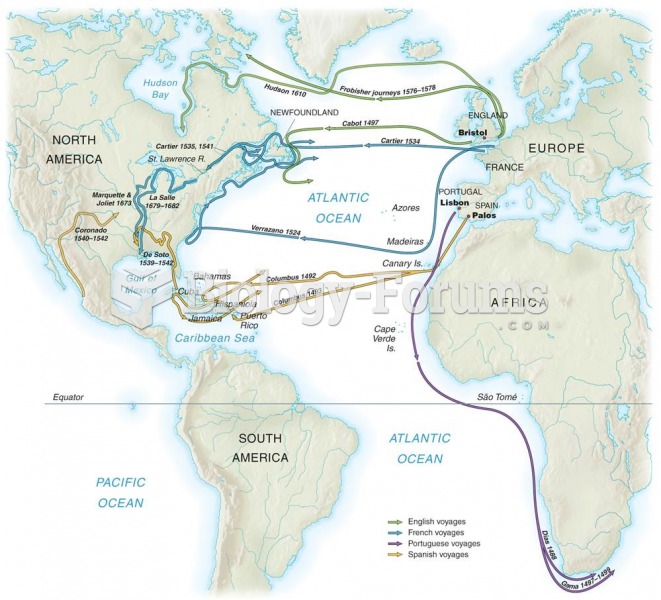|
|
|
One way to reduce acid reflux is to lose two or three pounds. Most people lose weight in the belly area first when they increase exercise, meaning that heartburn can be reduced quickly by this method.
In the United States, an estimated 50 million unnecessary antibiotics are prescribed for viral respiratory infections.
Your skin wrinkles if you stay in the bathtub a long time because the outermost layer of skin (which consists of dead keratin) swells when it absorbs water. It is tightly attached to the skin below it, so it compensates for the increased area by wrinkling. This happens to the hands and feet because they have the thickest layer of dead keratin cells.
Illicit drug use costs the United States approximately $181 billion every year.
More than 2,500 barbiturates have been synthesized. At the height of their popularity, about 50 were marketed for human use.







